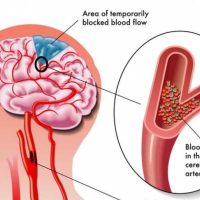 You might want to know the health facts for travelers. Here are the facts, including estimation of the risk of getting sick from traveling.
You might want to know the health facts for travelers. Here are the facts, including estimation of the risk of getting sick from traveling.
The basic facts
- 8 million travelers travel to a developing country.
- 1 in 10 seek medical care after travel
- 64% report 1 or more illnesses during travel
- 26% are ill upon return, 56% of those develops symptoms after arrival in their country.
Overall risk of exposure to infectious agents
- High risk (1 in 10 travelers): Diarrhea, URI, non-infectious illnesses such as injuries and cardiac problems
- Moderate risk (1 in 200): Dengue, enteroviral infection, gastroenteritis, giardiasis, hepatitis A, malaria, salmonella, STD, shigella
- Low risk (1 in 1000): Amebiasis, ascariasis, measles, mumps, enterobiasis, scabies, TB, typhoid, hepatitis B
- Very low risk (1 in >1000): HIV, anthrax, Chagas, hemorrhagic fevers, pertussis, plague, typhus, hookworm
Typical incubation periods for selected tropical infections
- <10 days (short incubation): traveler’s diarrhea, dengue fever, anthrax, diphteria, malaria, rabies, typhoid fever, meningococcal infections, typhus
- <21 days (intermediate incubation): leptospirosis, viral hemorrhagic fever, malaria, enteric fever (typhoid, paratyphoid),typhus
- >21 days: viral hepatitis (A to E), malaria, acute HIV infection, amebic liver abscess
- Months: TB, malaria, viral hepatitis B&C, HIV, rabies, syphillis
The conclusion
You are at risk to get sick when you travel to a new environment, but don’t let these facts prevent you from traveling and having a great holiday. Instead you can be more cautious and find the best way to prevent them and not let yourself end up in this fact list.
For those who already have certain medical problems and are taking regular medication, it is highly recommended to keep your medication list on hand when travelling. Consult a travel medicine clinic or your general practitioner as soon as possible after planning a trip to any destination where significant health risk may be foreseen. It is best to travel with enough medication for the duration of your travel and it is helpful if you can confirm the availability of your medicines in Bali. Some medication may not be available. Find out any particular hazards to your personal safety and security presented by the destination and take appropriate precautions.
If you have misplaced or lost any of your regular medication, it is reassuring to know that most medicines and vaccinations are available at BIMC Hospital for adults and children.
Source:
- Emergency Medicine, Tintinalli et al, 6th edition.











